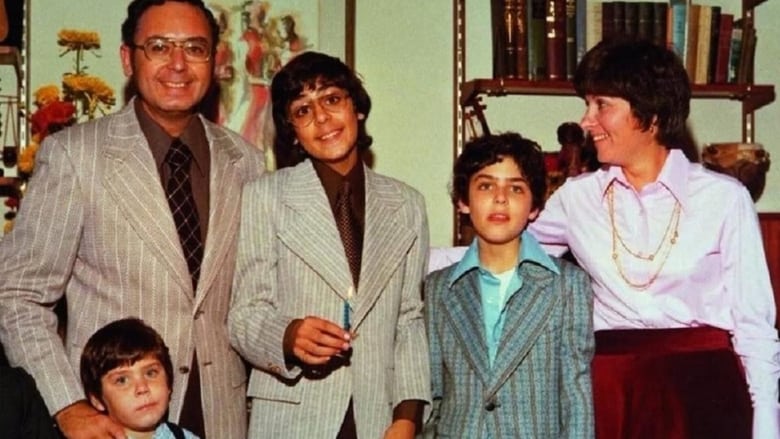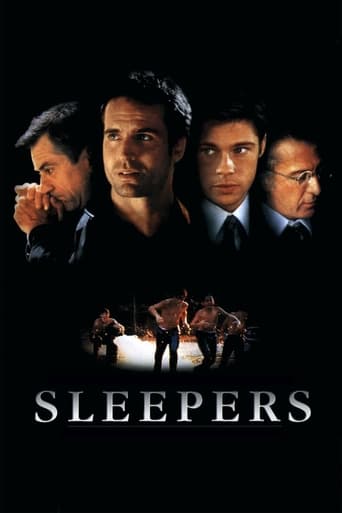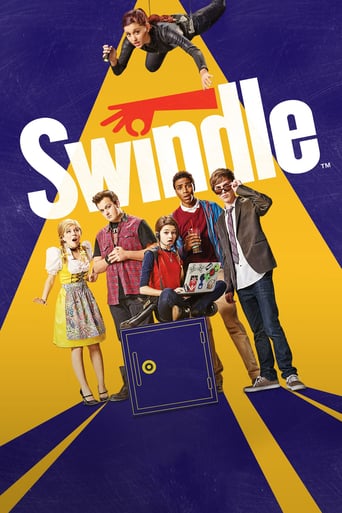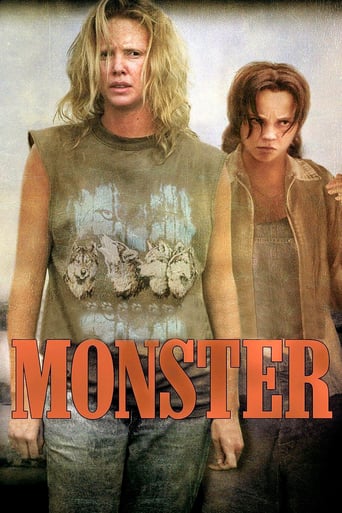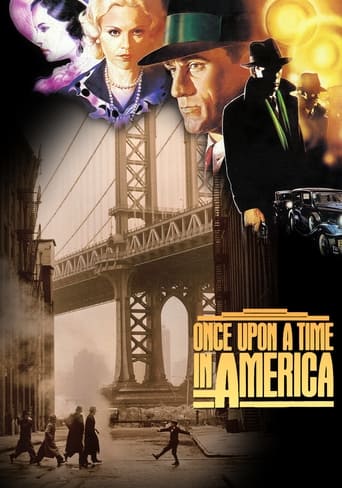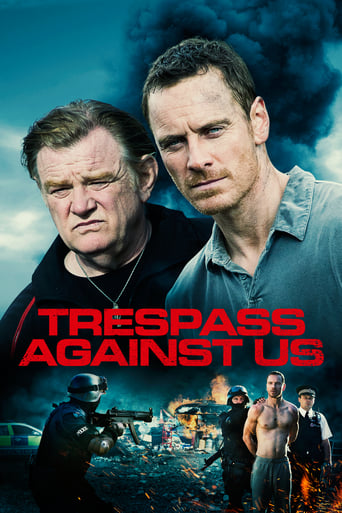Capturing the Friedmans (2003)
An Oscar nominated documentary about a middle-class American family who is torn apart when the father Arnold and son Jesse are accused of sexually abusing numerous children. Director Jarecki interviews people from different sides of this tragic story and raises the question of whether they were rightfully tried when they claim they were innocent and there was never any evidence against them.
Watch Trailer
Cast


Similar titles
Reviews
hyped garbage
Admirable film.
A different way of telling a story
This is one of the few movies I've ever seen where the whole audience broke into spontaneous, loud applause a third of the way in.
CAPTURING THE FRIEDMANS is one of the most thoroughly engrossing of all the documentaries I've watched. It tells the little-known - at least here in the UK - tale of an ordinary family man, working as a computer teacher at a local high school, who's exposed as a paedophile. What follows is an odyssey of despair and depravity as it turns out family members are involved in an ever-widening circle of crime and deceit.Thankfully, the makers of this documentary had access to reels and reels of 1980s-era home footage from video enthusiast Arnold Friedman, allowing the viewers to get fully drawn into his story. And it's a story full of the usual shocks and twists, one that gets more and more engrossing as time goes on. Moral quandaries are raised, along with the very real possibility of a miscarriage of justice, and the flaws in the American justice system are the most frightening thing on display.CAPTURING THE FRIEDMANS has the power to shock you, to disgust you, to make you angry, and, most surprisingly of all, to make you feel sorry for a paedophile. It's one of the most thought-provoking films I've seen, and should be watched in the company of others for the debate that will surely follow a viewing.
"Capturing the Friedmans", directed by Andrew Jarecki, connects to the human condition by first presenting us with a picture of what we've come, as a society, to believe an upper-middle class family looks like, then it turns that ideal over, to view the underbelly and inner-workings of the family unit. The fact that a large part of the footage was shot by David Friedman, eldest son of convicted pedophile Arnold Friedman, gives the footage an essence of raw truth. We see the happy family in candid clips of their birthdays, celebrations and road trips. And we watch, helpless as their family unravels. Jarecki navigates the audience through interviews, changing testimonies, and conflicting memories that inform us; the perception of truth is mutable.David Friedman filmed the drama of his family falling apart as if it were a soap opera. The facade of the ideal family crumbles as Jarecki compiles newsreels, photographs, and interviews with family, friends, student's parents and the authorities that force us to consider an awful truth. Despite education, money, respect in the community, and an overall stable appearance, Arnold Friedman and Jesse Friedman were convicted of horrendous crimes that were reportedly committed in their home. The Plot Arnold Friedman is a family man, respected in the community. He teaches computer classes to children ages 8 – 11. His life begins a downward spiral when it's discovered that he's been purchasing kiddie porn from the Netherlands. An investigation is opened, his house is searched and his collection of magazines is confiscated. When the police find a list of his young students, they become suspicious about Friedman's intentions and begin an investigation.Witnesses start coming forward after initial questioning begins. The allegations of sexual abuse by Arnold Friedman and his youngest son Jesse Friedman seem to be endless. Father and son are ultimately convicted and sentenced. In the end, Arnold Friedman confesses that he is a pedophile and he molested his son Jesse. He kills himself with an overdose of anxiety medication while serving his sentence. After his father goes to prison, Jesse Friedman pleads guilty and is convicted of sexual molestation and sodomy. Once the judge sentences him, Jesse Friedman emphatically denies his guilt and states that he was coached by his lawyer who advised him to plead guilty. He also disputes his father's claim, that he was one of his father's victims. However, under oath he alleged that his father had, in fact, molested him. After recanting this statement, Jesse Friedman remained steadfast in his claim that he was not guilty and was released in 2001, after serving only thirteen years of his sentence. Theme: The perception of truth is mutable.Subtext: We are presented with disparaging facts and testimony throughout the film. It seems as if everyone is trying to convince us (or maybe themselves) of either the Friedman's guilt, or their innocence. According to noted author Vikki Bell, "The film itself problematizes the notion of 'reviewing' and especially the nature of 'evidence' where that evidence relies upon memory." (Theory, Culture and Society. P. 91). In the case of the Friedmans, the review is most decidedly problematic. Many of the 'players' in this drama change their testimonies. Their memories are informed by the passage of time and the events that have taken place since the incidents. Jesse Friedman admitted that he lied in his testimony at his trial, albeit because he was supposedly instructed to do so by his attorney. He stated that his father had molested him. But his testimony changed when it appeared that the confession would do nothing to aid his cause. Many of the children that came forward during the trial repudiated the charges as adults, claiming no memory of the incidents.Aesthetics: The subtext that review is problematic, and becomes more so when that review is based upon memory, illustrates that presentation informs the perception of truth, making it mutable. We see this message throughout the film. In one clip, Elaine Friedman talks about her memories of being presented with the porn her husband had been purchasing. She says ". . . you know, I didn't see it. My eyes were in the right direction but my brain saw nothing. Because when it was all over the lawyers showed me the magazine and then I saw it for the first time, I really saw it." Her statement says everything about how we perceive information and about how truly mutable the perception of truth can be, when it's based on recollection. It also speaks to the fact that the perception of truth is mutable based upon what someone desires to see or remember. The intersection of plot, theme and editing: Jarecki pulls together the plot and the theme that the perception of truth is mutable, and proves it by using editing to create dramatic impact and influence judgment. According to research done by The Leadership Council on Child Abuse and Interpersonal Violence, there was substantial evidence that was left out of the film (through editing). This "leaving out" of information creates an environment aimed at questioning the outcome of the trials.
Nassau County district attorney, Kathleen M. Rice, re-investigated the case of Jesse Friedman in 2013 to determine whether his conviction should be upheld or overturned. Their report, prepared by an independent review panel, demonstrate Capturing the Friedman's is, in the mildest terms 'incomplete, and in some points, even incorrect, either case misleading.Here are some of the key points taken from the report (which can be found online in District Attorney's web site). With respect to the Jesse Friedman case, the report says: " None of the five individuals who Friedman advocates suggest "recanted" have, in fact, recanted to any degree of legal certainty. Three have not recanted at all. Reviews of transcripts concerning these individuals reveal that abuse occurred. Another who spoke to the Review Team stood by his account, in contrast to the statement he gave to filmmakers. The subject of the most recent purported recantation has refused to speak to the Review Team or even confirm he wrote the letter outlining the claim, which was provided to the Review Team by Jesse Friedman's lawyer." "Unedited film transcripts of Judge Abbey Boklan and Detective Anthony Squeglia show that each was the subject of selectively edited and misleading film portrayals in Capturing the Friedmans." "The "Meyers Tape" – one of only two pieces of direct evidence of heavy-handed police interviewing techniques cited by Friedman, his advocates and the Court – is, in fact, no tape at all. All that remains of a tape that hasn't existed for more than two decades are notes taken during its screening by a Jesse Friedman attorney. Those notes, presumably limited to information the attorney found helpful to his client's case, were then reduced and curated by filmmakers, and read dramatically by Friedman's attorney in Capturing the Friedmans." "A sworn affidavit from the therapist who treated former student "Computer Student One," stated that she never performed hypnosis on the child. A portion of an unedited transcript of the film's interview with "Computer Student One" contradicted his claim of pre-outcry hypnosis and had been edited out. "Computer Student One" claimed in a 2004 media report that Capturing the Friedmans "twisted" his account. The filmed allegations of "Computer Student One" remain the only direct evidence offered by Friedman or his advocates suggesting that hypnosis was used to induce victims to make accusations in this case."I also find it difficult to understand how these basic facts are totally omitted in the documentary, such as: "While maintaining his innocence prior to his eventual guilty plea, Friedman commissioned and failed at least two lie-detector tests."Overall I found the film, especially the narcissism still preserved in Friedmans' character interesting enough to google the case. In this sense, I guess that makes it good fiction movie, but still not a documentary.
A controversial documentary about the Friedman family, a seemingly typical, upper-class Jewish family living in Long Island, New York. Their very normal and somewhat happy world was turned upside down when the father and his youngest son were arrested and charged with some very shocking and disturbing crimes.'Capturing The Friedmans' is a film of which 95% was watched with a very bemused expression on my face. It's one of those stories you'd happily accept as a work of bold and slightly twisted fiction; the fact that it's all reality is awful. It won't be a spoiler to reveal that the crimes in question were all related to the sexual abuse of children, and the description of those supposed crimes is horrific.Supposed though, because what the film does so well is point out that the actual truth still really isn't known. It's hard to doubt the evidence against Arnold Friedman, the patriarch and alleged main abuser, but it's the involvement of son Jesse that raises the most doubts. Only seventeen himself when the allegations were made, it is difficult to believe that he could be involved. However, it is very plainly shown that he was one of three sons that had a deep affection for their father, but could it really extend as far as agreeing to assist in his sordid acts? That is one of the conundrums of the movie.What really fascinates me about the documentary is the portrayal of Elaine Friedman, the victimised wife and mother. Not victimised just by the outside world, but by her own family. Unlike the rest of the family, she doesn't blindly trust her husband, which leads to some heated arguments and an eventual alienation from everyone. Her testimony is possibly the most impactful, being the woman who has known Arnold the longest and could cite moments which gave credence to his guilt.Director Andrew Jarecki is fantastic at making sure he stays as neutral as he possibly can, given the circumstances. It would have been very easy to turn it into a biased look at an evil family; but Jarecki makes sure to not go down that route. Through the use of home video footage and interviews, we are made to look at the story from every perspective. The ending of the movie is a very emotional and, somehow, happy one, giving a level of sympathy we probably didn't want.'Capturing The Friedmans' is a very good documentary, but it wouldn't be everyone's cup of tea. However, get past the fact that this is people who potentially committed heinous crimes against innocent children, and what you get is a story about family and loyalty. Excellent.


